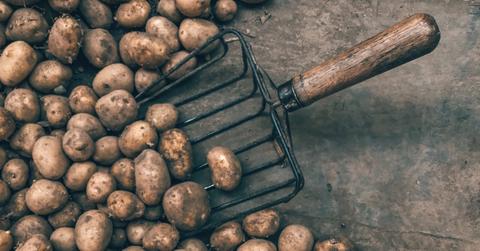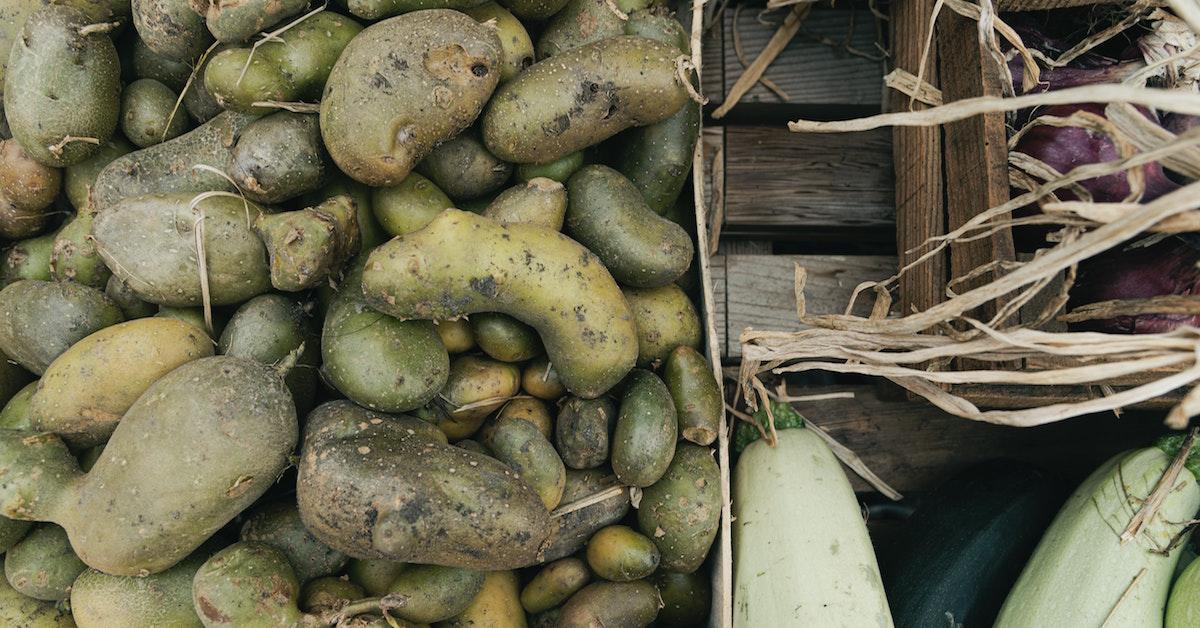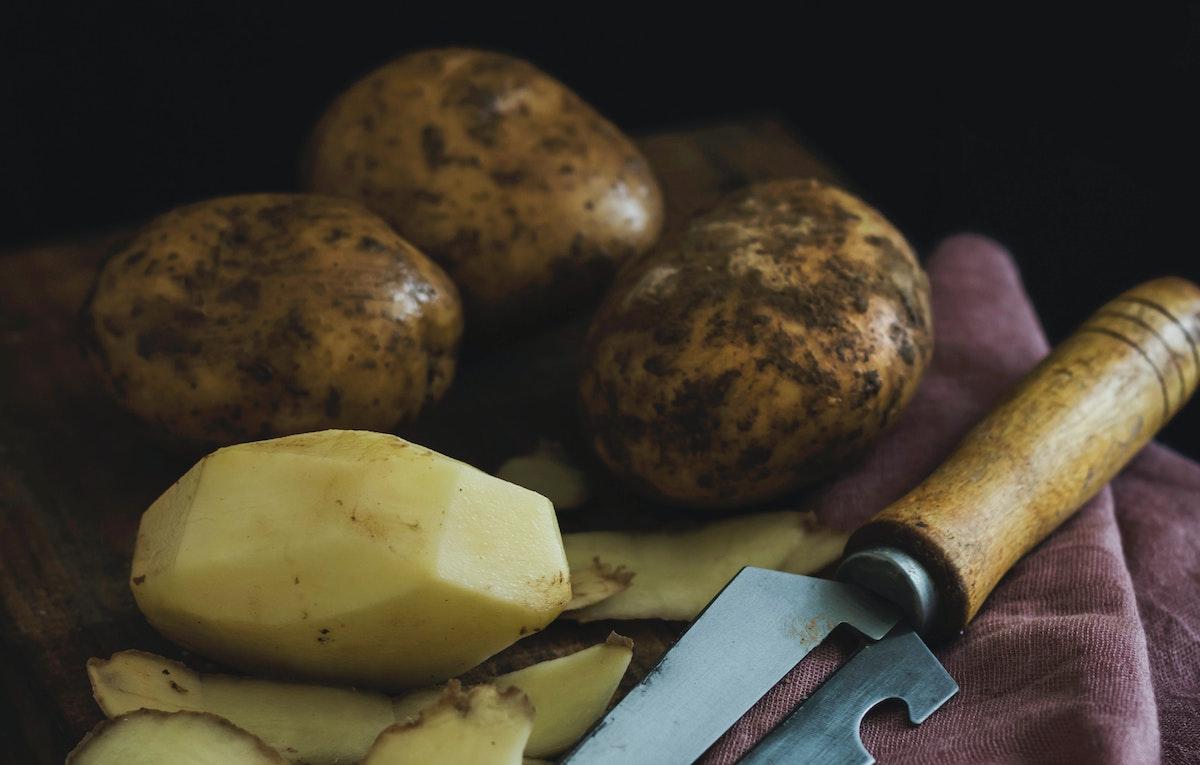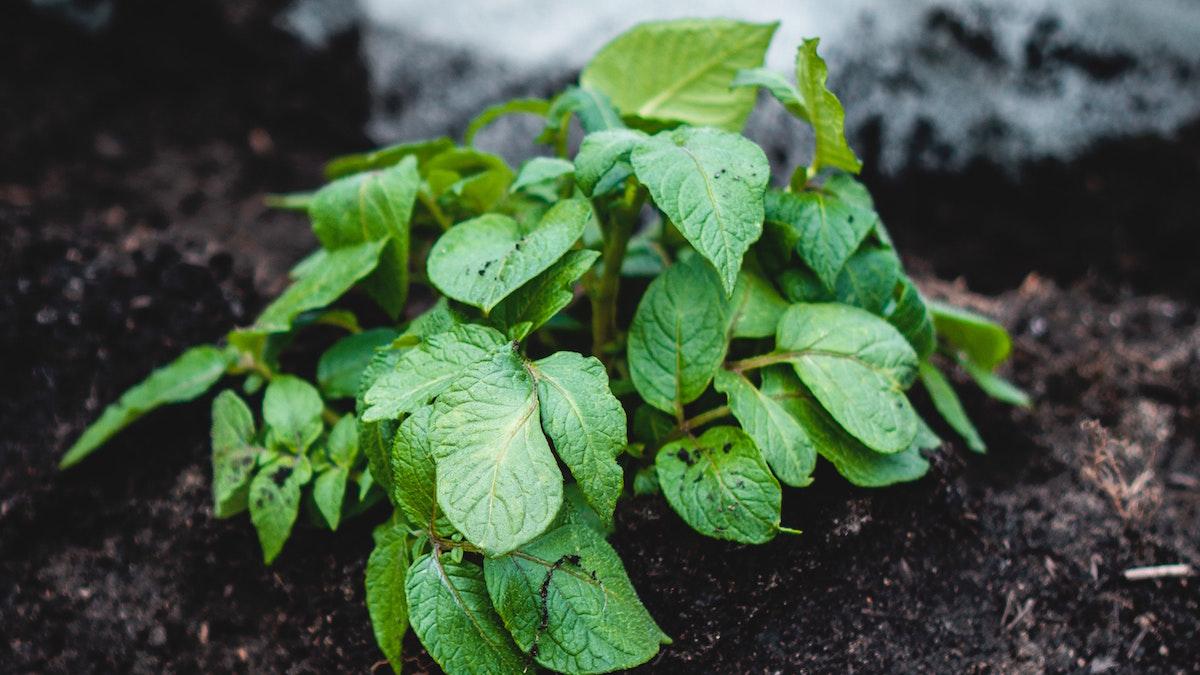Is It OK to Eat Potato Sprouts?
Published Sept. 8 2021, 1:42 p.m. ET

There is an assumption among some people that potatoes which have begun to sprout “eyes” are no longer safe for human consumption. The existence of this belief is likely contributing to the more than 108 billion pounds of food wasted in the U.S. every year, according to Feeding America. A sizable chunk of that wasted produce is probably made up of sprouting potatoes. But are potato sprouts safe to eat, or are they an indication that the potato has gone rotten?

Are potato sprouts safe to eat?
According to Rachael Ray's website, potato sprouts are full of a potentially toxic substance called glycoalkaloids, a compound that is native to all nightshade fruits and vegetables. In high enough concentrations, these toxins can wreak havoc on a person’s central nervous system and can affect the way our bodies regulate acetylcholine, a necessary neurotransmitter. But does this mean that the potato itself is unsafe to eat?
The answer is, sometimes. According to Kitchen Bar, those same glycoalkaloids can be beneficial if they are eaten in small amounts. Glycoalkaloids can lower bad cholesterol and raise blood sugar levels in a healthy way. They also have antibiotic properties. However, the more a potato sprouts, the higher those concentrations of glycoalkaloids become. At the same time, as potatoes sprout, they begin to convert their excess starch into sugar, which thins out the other nutrients as well.

Are there any risks associated with eating potato sprouts?
Eating sprouted potatoes that have passed the point of no return can lead to alkaloid poisoning. According to Kitchen Bar, excess consumption of glycoalkaloids usually begins to manifest about a day after eating the tainted tater. Common symptoms include diarrhea, vomiting, and/or abdominal pain. Other, more severe symptoms are headache, fever, rapid pulse, and low blood pressure. Extreme cases have resulted in death. People who are pregnant should avoid eating any potato that has sprouted.
How to easily remove potato sprouts:
If you want to eat your potatoes despite their sprouts, you can simply remove them. Vegan chef Max La Manna has a great technique for doing so that he explained to Green Matters: simply use a spoon to easily carve out each sprout before cooking your potatoes.

Why do potatoes sprout?
Potatoes begin to sprout because they are ready to grow into a potato plant. When you see sprouts — or eyes, as they are sometimes called — it’s because your spud has been in a location that it finds ideal for growing anew. According to Food Network, potatoes don’t really need dirt to start growing, all they require is a bit of darkness and moisture, both of which can be found in a common kitchen pantry.
These sprouts also mean that your potato’s shelf life is coming to a close. According to Wide Open Eats, potatoes that have begun to sprout will also tend to have a layer of green beneath their mottled skin, which is a further indication of the potato’s readiness to grow into a full potato plant. They may also become wrinkly or soft if the sprouts are far enough along, and that’s when you might want to be concerned.
Are potatoes nightshades?
Potatoes, along with eggplants, tomatoes, and peppers, are members of the nightshade family. According to WebMD, all nightshades contain small amounts of alkaloids, but those chemicals are not usually found in nightshade fruits like peppers or tomatoes. Instead, those alkaloids are commonly found in the leaf, stems, and roots of the nightshade, which is why potatoes are of special concern.
As tubers, potatoes are considered a root vegetable and have higher concentrations of glycoalkaloids than their fellow nightshades. Still, as long as you’re careful to pull the stems and check the taters, you likely needn’t worry about poisoning yourself.